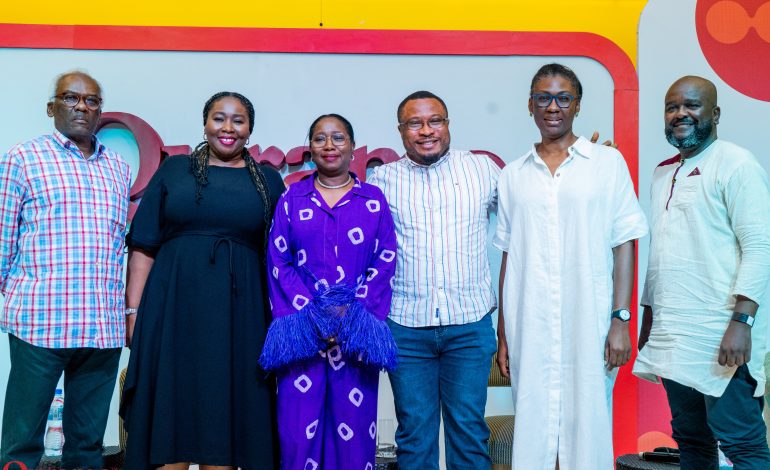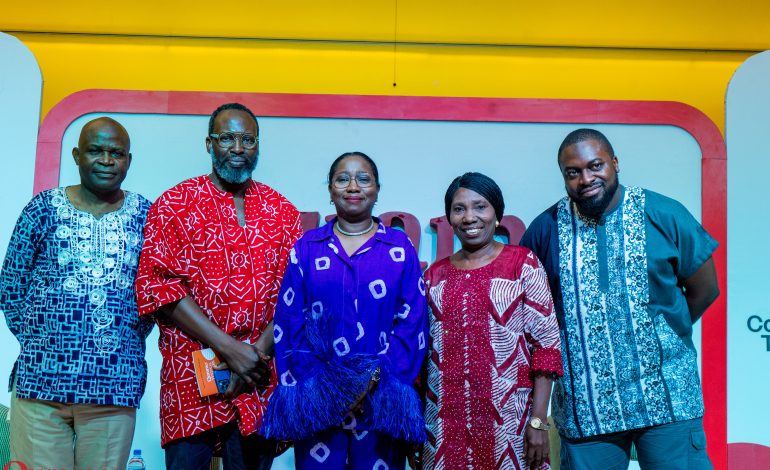Publishers link poor performance of students to neglect literature suffers in schools

* ‘Learning a second language like English in Nigeria without the literature workshop environment is futile’
By Anote Ajeluorou
WHAT is the link between the study of literature and the performance of students and overall educational attainment in Nigeria? Is there a link between literature and academic performance? Although there’s no empirical study with data to make an obvious link yet, some experts believe there is indeed a link and have suggested that dropping literature entirely from a school curriculum spells disaster for students’ overall cognition and performance. They argue that the absence of literature impacts negatively on the cognitive ability of students to grasp other subjects since literature has serious implication for the language development of students. Denying students the linguistic resources that literature provides, they added, necessarily retards students’ cognition and overall understanding of concepts.
Specifically, the experts said since the indigenisation decree that made publishing concerns to fall into local hands, there has been a disproportionate emphasis on the production of textbooks and a steady decline in attention paid to literary texts. What this means is that local publishers have continued to emphasise profit over a rounded educational attainment of Nigerian students. This, they argued, was a direct opposite of what expatriate publishers practised while they held sway in the early publishing firms such as Oxford University Press, Longman, Heinemann, Cambridge University Press, Macmillan, etc. These foreign publishers published a good deal of literary texts in the form of novels, poetry, drama and short story collections. Without them, early writers like Chinua Achebe, Wole Soyinka, Amos Tutuola, Elechi Amadi, etc would not be known.
This position was made at Quramo Festival of Words 2023 that ended recently in Lagos. CEO/MD of Bookcraft Mr. Bankole Olayebi and COO of Narrative Landscape Press, Dr. Eghosa Imasuen lamented the loss of momentum of literary texts over textbooks. Other panel members included the CEo of Paperworth Books, Ibiso Graham-Douglas and Legal Advisor for Quramo Publishers, Lanre Shasore, with moderation from Kenyan literary blogger, James Murua. They spoke at the panel session on ‘Global Rights, Local Rights: Whose Rights’ during the festival. They argued that literary texts began to suffer in the hands of the early local players who stepped into the shoes of the departing expatriate owners of the publishing outfits, saying the local players managers/owners failed to understand the dynamic mix of textbooks and literary texts and their necessary partnerships in the education of a complete mind.

Mr. Bankole Olayebi (left); Ibiso Graham-Douglas; Convener, Quramo Festival of Words, Mrs. Gbemi Shasore; Dr. Eghosa Imasuen; Lanre Shasore and Mr. James Murua after the session on ‘Global Rights, Local Rights: Whose Rights’ at QFest 2023 in Lagos
The foreign publishers followed the tradition back home in England, where publishing was, and is not just a mindless profit concern, but a means of improving the health of society through refining its mind with publications that impact on humanistic ethos. When the expatriates were forced to leave, the Nigerian owner-managers, who took over lacked this sense of overall impact a publishing firm ought to have on society and went solely for profit instead and abandon the essential social refinement publishing houses also stand for. Olayebi and Imasuen said the profit-minded business model of the big publishers soon impacted on educational planners, who increasingly didn’t see the need to incorporate literary texts as essential ingredients in classroom work. What was worse, with the increase in the number of schools and neglect of school libraries, stocking them with reading texts like novels and plays was abandoned entirely. The result of this absence has been the steady decline in comprehension and cognition of concepts by students that necessarily result in failure in classroom work and examinations.
“What they didn’t realise was that part of profits made from textbooks ought to be ploughed into literary texts or novels to make them readily available for readers,” Imaseun said. “That was what the foreign managers were doing and there was a healthy mix. What we have now is total abandonment of literary texts for textbooks, where publishers bid for billions of naira contracts from governments but do not invest in literary texts like novels, plays, poetry, etc. Yes, they are making profits, but they have killed the essential refinement of minds that publishers ought to bring about as their contribution to society. And this has overall impact on educational attainment. The quality of written essays and cognition have become very low and is declining farther every year.”
Olayebi, who trained under one of the best expatriate publishers and founder of Evans Brothers, Spectrum Books and Safari Books, the Dutchman, Chief Joop Berkhout, said he founded Bookcraft in response to the vacuum the so-called big publishers created with their penchant for profits in textbook publishing. Bookcraft is a pioneer indigenous literary text publishers and blazed the trail for other local independent publishers like Farafina, Cassava Republic Press, Parresia Publishers, Narrative Landscape Press, Masobe Books, Ouida Books, Paperworth Books, etc to follow. While these independent publishers are doing their best to fill the literary gap, they are up against a national economy that has pauperised a swath of the population, and which currently makes effective patronage of literary texts a huge challenge.
There is urgent need therefore for curriculum planners to reevaluate the curriculum and reallign it for the better. Division between arts and science subjects in secondary schools is counter-productive, as it takes science students farther away from the humanistic values literature affords its patrons. Students at secondary level can have a healthy mix of arts and science subjects and be the better for them rather than the dichotomy that currently exists that denies most students the cognitive value of literary texts. Literature is the workshop of language. Denying students the workshop environment that literature provides for Nigeria’s second language environment is harmful and a disservice of immense proportion to students and all learners of second languages. Learning a second language like English in Nigeria without the literature workshop environment is futile.



